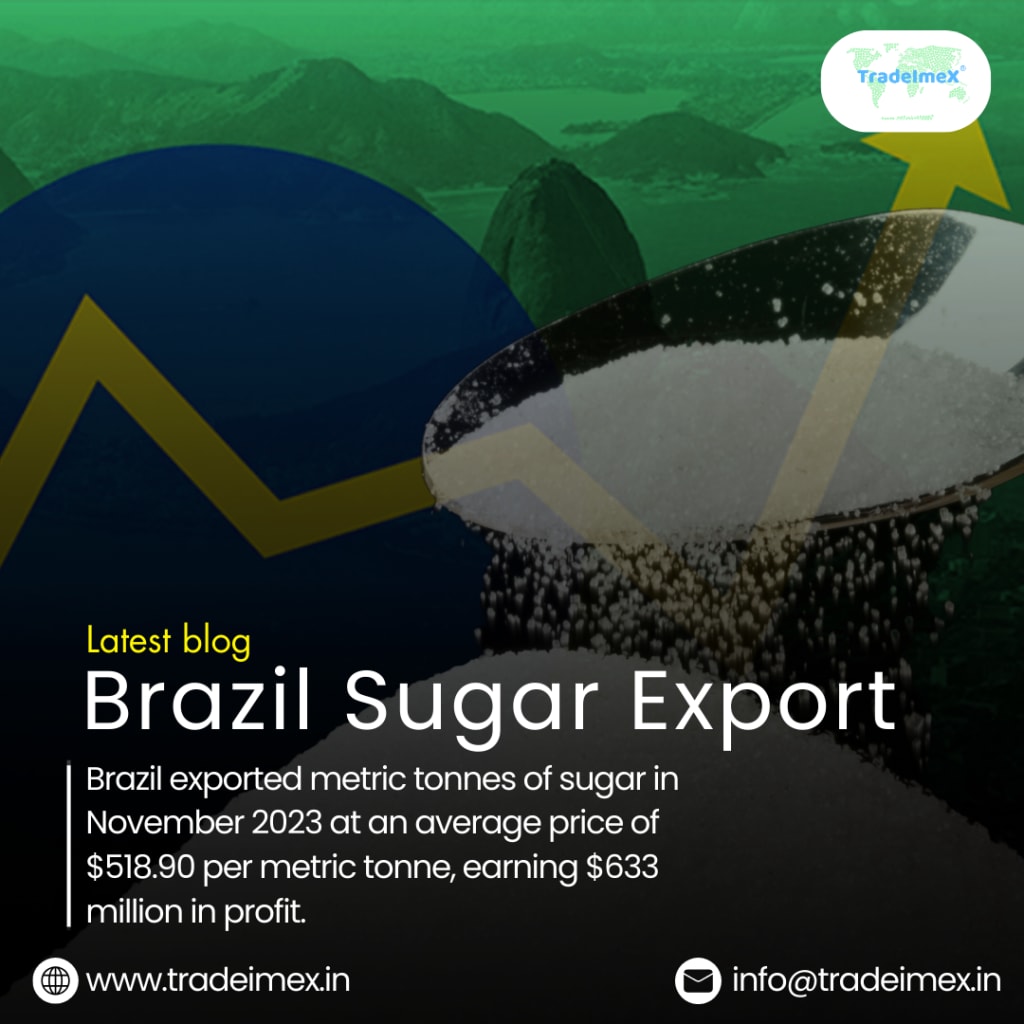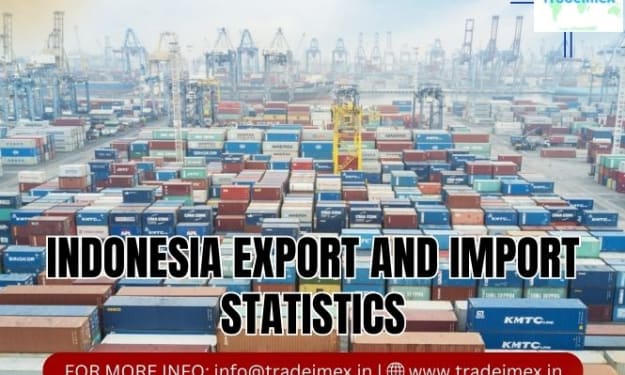Does Brazil Import a Lot of Food?
Brazil Import Food

Brazil, known for its vibrant culture, lush landscapes, and thriving agricultural industry, has been a global powerhouse in food production. However, as we delve into the complexities of Brazil's food landscape, a pertinent question arises: Does Brazil import a lot of food? This article aims to dissect the factors influencing Brazil's food importation, the types of foods commonly imported, and the impact on the nation's agricultural dynamics.
Introduction
Brief Overview of Brazil's Agricultural Landscape
Brazil stands as one of the largest agricultural producers globally, boasting an expansive terrain conducive to diverse crop cultivation. From sugarcane to soybeans, the nation has become a key player in meeting global food demands.
Importance of Food Security
According to Brazil Import Data with an ever-growing population and shifting consumption patterns, ensuring food security has become paramount. Brazil's ability to balance domestic production and imports plays a crucial role in meeting the nutritional needs of its citizens.
The Role of Imports in Meeting Food Demands
While Brazil's agricultural prowess is evident, the nation relies on imports to supplement its domestic production. Understanding the dynamics of these imports is essential to grasp the intricacies of Brazil's food landscape.
Understanding Brazil's Agriculture
Overview of Brazil's Agricultural Production
Brazil's agriculture is characterized by a diverse range of crops and livestock. The nation leads in the production of soybeans, beef, poultry, and sugarcane, contributing significantly to the global supply chain.
Major Crops and Exports
Soybeans, a cornerstone of Brazilian agriculture, are a major export commodity. Additionally, Brazil is a significant exporter of beef and poultry, further solidifying its position in the global market.
Challenges Faced by Brazilian Agriculture
Despite its successes, Brazilian agriculture faces challenges such as deforestation, climate change impacts, and land-use conflicts. These challenges influence the nation's approach to food production and imports.
Factors Influencing Food Importation
Population Growth and Consumption Patterns
Brazil's population growth, coupled with evolving dietary habits, contributes to increased food consumption. The need to meet these demands often leads to food imports to maintain a diverse and comprehensive food supply.
Climate and Geographic Constraints
Certain regions in Brazil face climatic and geographic limitations for specific crops. Imports become necessary to bridge the gap between demand and local production, ensuring a steady food supply nationwide.
Economic Considerations
Global economic dynamics and trade agreements also play a role in Brazil's decision to import certain foods. Economic factors influence the feasibility and cost-effectiveness of producing certain items domestically.
Brazil's Top Imported Foods
Analysis of the Most Imported Food Items
Brazil's top imported foods range from grains and cereals to specialized products like coffee and olive oil. Analyzing the reasons behind the preference for imports provides insights into consumer preferences and market demands.
Reasons Behind Specific Imports
Certain food items are imported due to taste preferences, seasonal variations, or the inability to produce them locally. Understanding these reasons helps in shaping policies that balance domestic production and imports.
Trade Partners for Food Imports
Brazil engages in food trade with various nations globally. Exploring the key trade partners sheds light on the diplomatic and economic aspects of Brazil's food importation.
Impact on Local Agriculture
Balancing Domestic Production and Imports
Finding the right balance between domestic production and imports is crucial for maintaining a resilient agricultural sector. Striking this balance ensures food security while supporting local farmers.
Effects on Local Farmers and Economy
The influx of imported foods can impact local farmers, raising concerns about market competition and economic sustainability. Examining these effects helps in devising policies that safeguard the interests of local agriculture.
Government Policies Addressing Imports
Brazilian authorities implement policies to regulate food imports, ensuring the coexistence of domestic and imported products. Understanding these policies provides insights into the government's approach to food security.
Future Trends and Challenges
Projections for Food Imports in Brazil
Examining future trends in food imports offers a glimpse into Brazil's evolving food landscape. Projections help policymakers anticipate challenges and plan strategies for a sustainable and secure food future.
Sustainability Concerns
As global awareness of environmental sustainability grows, Brazil faces challenges in ensuring that its food imports align with eco-friendly practices. Balancing the demand for diverse food choices with sustainability goals is an ongoing challenge.
Technological Advancements in Agriculture
Embracing technological innovations is crucial for enhancing domestic production and reducing reliance on imports. Exploring the role of technology in agriculture sheds light on the future trajectory of Brazil's food industry.
Conclusion
In conclusion, Brazil's journey in food importation is a delicate dance between meeting the diverse needs of its population and ensuring the prosperity of local agriculture. Striking this balance is essential for a sustainable and secure food future. As Brazil navigates the challenges and embraces technological advancements, the nation's ability to adapt will shape its role in the global food market.
About the Creator
tradeimex solution
TradeImeX ® Info Solution Pvt Ltd specializes in providing Import Export Data and Global Trade data for more than 70 countries. We are one of the reliable companies in delivering one of the best and most exclusive databases.






Comments
There are no comments for this story
Be the first to respond and start the conversation.